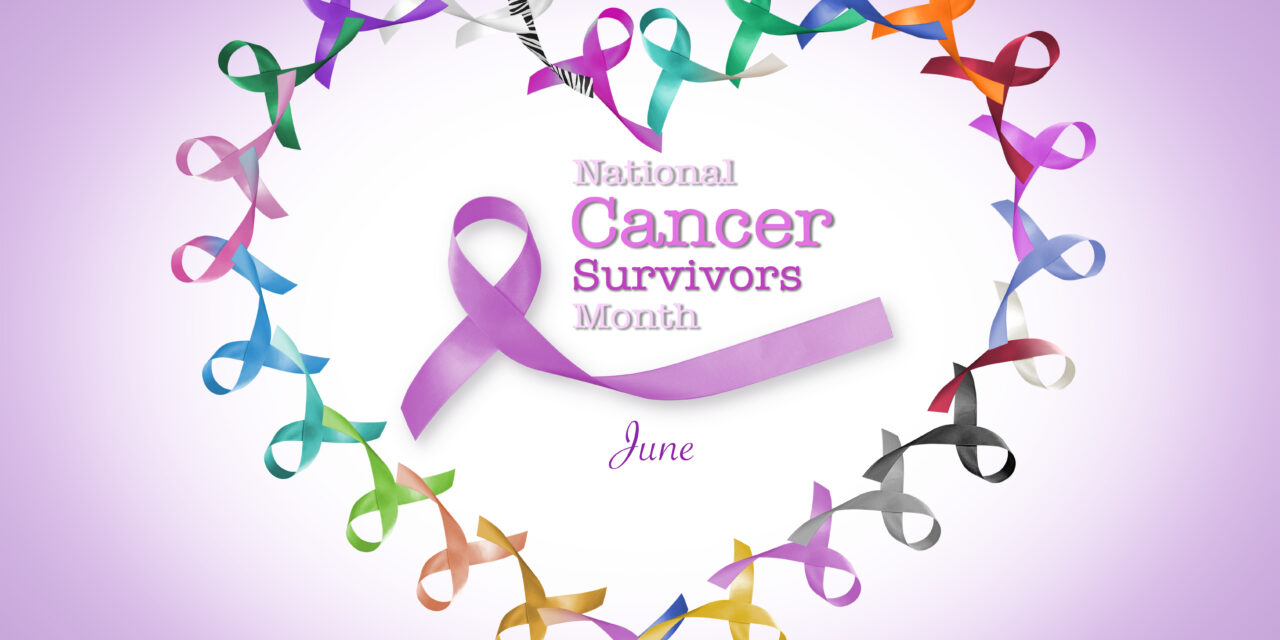Courtesy of Great Lakes Cancer Care Collaborative
Any person who has had a cancer diagnosis at any point in their lives, or who is currently living with cancer, is known as a “cancer survivor.” When people discuss what it means to be a cancer survivor, their feelings about this label vary greatly, and some might refer to the challenges they have had to face as a result of their cancer diagnosis.
Fortunately, according to the National Cancer Survivors Day (NCSD) website www.ncsd.org, great progress has been made over the past few decades. Survivors are living many years beyond their initial diagnosis and receiving supportive services after their active cancer treatment has concluded. More than 18 million people living in the United States today have a history of cancer, and more than 12 million are 65 years of age or older.
Cancer survivors often have many questions upon concluding their treatment. They wonder about their prognosis and what the new normal will be like for them. For some, it may be difficult to resume the lives to which they were accustomed prior to being told they had cancer. Many feel uncertain, fearful, and anxious about the future.
The National Cancer Survivors Day Foundation emphasizes the importance of advocating for more resources, research, and survivor-friendly legislation to improve the quality of life of cancer survivors, both during and after cancer treatment. Consistent with this effort, NCSD encourages everyone to celebrate National Cancer Survivors Day® this year on June 6, by increasing their awareness of the hardships that cancer survivors face even after their treatment ends. To that end, NCSD has created a list of helpful resources to help both survivors and their loved ones, available at https://ncsd.org/cancer-survivorship-issues. Another helpful resource is a cancer survival toolbox provided by the National Coalition for Cancer Survivorship (NCCS) at https://canceradvocacy.org/resources/cancer-survival-toolbox.
Jennifer Wojcik, Physician Assistant and Survivorship Program Director at GLCCC encourages every cancer patient to request a survivorship care plan from their physicians. The care plan should summarize all treatment(s) received, the possible side effects of the cancer treatment(s), and steps they should take to take to stay healthy. It is also important for cancer survivors to have access to information on the psychological effects of cancer, financial issues, healthy lifestyle recommendations, genetic counseling, and any necessary referrals for needed follow-up care, along with a list of supportive resources.
GLCCC also wants patients to know about their free monthly education seminars and events for patients who have completed active treatment and who want to learn ways to stay mentally and physically healthy after cancer. Seminar topics include nutrition, lymphedema, pain management, body image, and art therapy. Learn more and register for a seminar at www.greatlakescancercare.org/events. Also, learn about the types of cancer treated by GLCCC physicians at www.greatlakescancercare.org, and call 716-884-3000 to make an appointment or ask a question.












